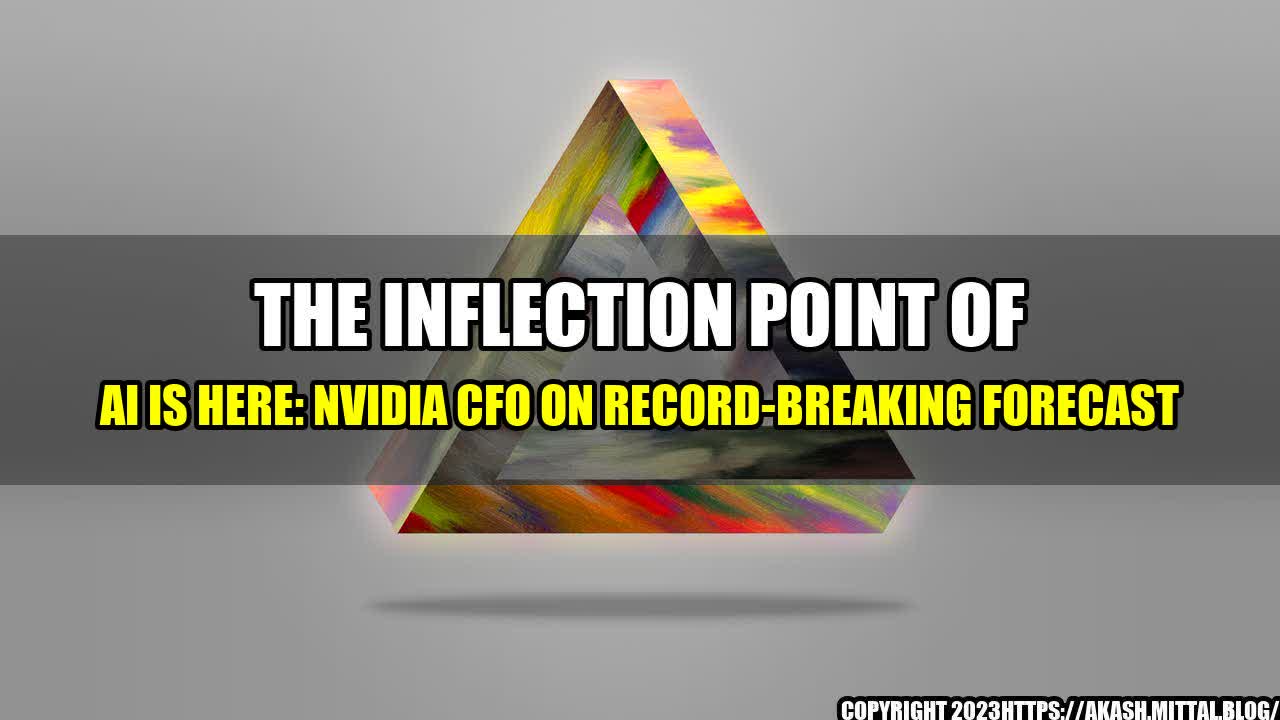The Inflection Point of AI Is Here: Nvidia CFO on Record-Breaking Forecast

Imagine driving your car on a busy street. Suddenly, a pedestrian emerges from behind a parked car, and you slam on the brakes. Just in time, your car comes to a screeching halt and avoids a potentially fatal accident. What if that moment had been different? What if the pedestrian had been standing in a different position, or if there had been a passing car blocking your view? How would your car react?
The answer is Artificial Intelligence (AI). With AI, your car can be equipped with sensors and algorithms that can detect and react to the world around it. This is just one of the many applications of AI, and the possibilities are endless. According to the Nvidia CFO, Colette Kress, the Inflection Point of AI is here, and it is quickly changing the landscape of technology.
Record-breaking Forecast
Nvidia, a leader in AI technology and graphics processing units (GPU), recently announced their record-breaking Q1 revenue forecast of $5.3 billion. This is a significant increase from their previous forecast of $4.5 billion, and this growth is largely attributed to the demand for AI applications across various industries, such as healthcare, finance, and retail.
With the pandemic forcing many businesses to adopt digital solutions, there has been an increasing need for AI-powered tools that can help companies analyze data, automate tasks, and improve efficiency. According to a report by ResearchAndMarkets, the global AI market is set to reach $172.2 billion by 2025, with a CAGR of 42.8% from 2020 to 2025.
The Power of AI
AI has the power to transform every aspect of our lives, from healthcare to transportation. In healthcare, AI can be used to diagnose diseases, develop personalized treatments, and predict outcomes. In transportation, AI can improve road safety, reduce traffic congestion, and optimize logistics. In retail, AI can enhance customer experiences, streamline supply chains, and improve inventory management.
One practical example of AI in action is in Amazon's recommendation system. The system uses AI algorithms to analyze customer data and provide personalized product recommendations based on their browsing and buying history. This has helped to increase sales and customer satisfaction, making Amazon one of the most successful e-commerce companies in the world.
The Future of AI
As AI continues to grow in popularity and sophistication, there are concerns about its impact on employment and privacy. However, there are also opportunities for innovation and collaboration that can help to address these issues.
One solution is for businesses and policymakers to work together to establish ethical guidelines and regulations that can protect the rights and interests of all stakeholders. Another solution is for companies to invest in training and upskilling their employees to adapt to the changing landscape and remain competitive.
In conclusion, the Inflection Point of AI is here, and it is changing the world as we know it. With its ability to analyze data, automate tasks, and improve efficiency, AI has become an indispensable tool for businesses and industries across the globe. As we move forward, it is important to embrace the possibilities of AI while also being mindful of its potential risks and challenges.
Curated by Team Akash.Mittal.Blog
Share on Twitter Share on LinkedIn